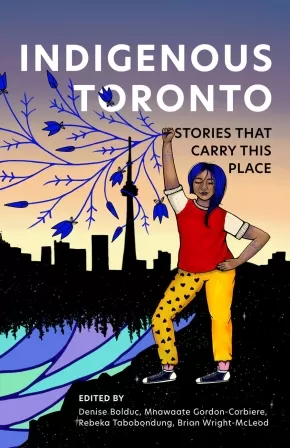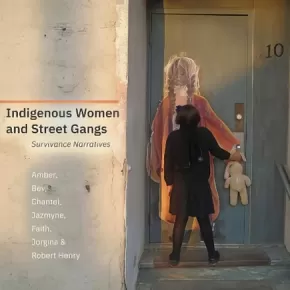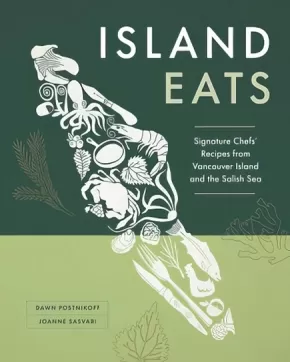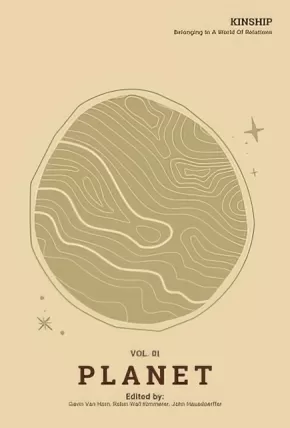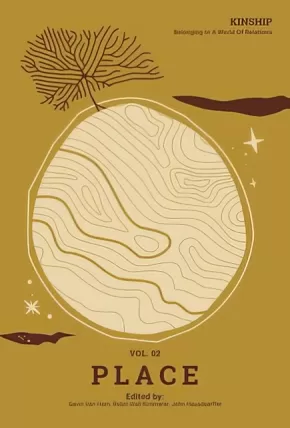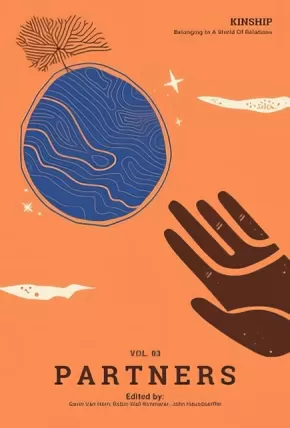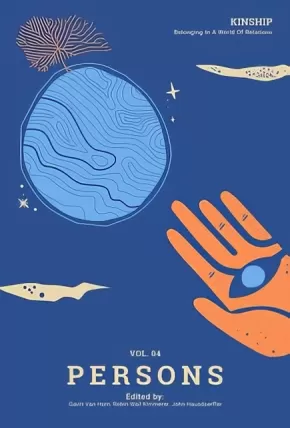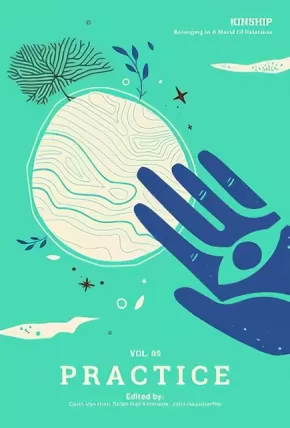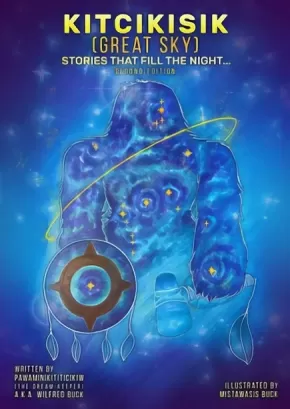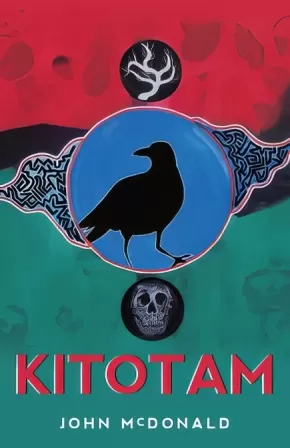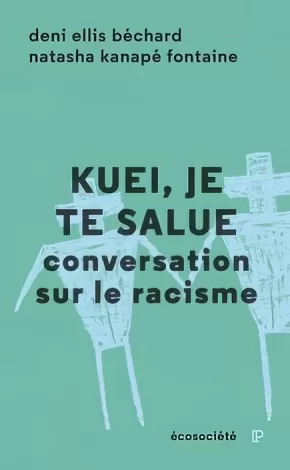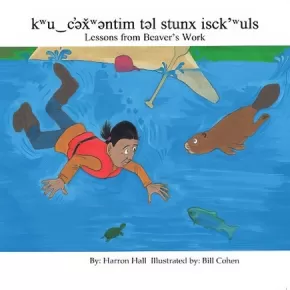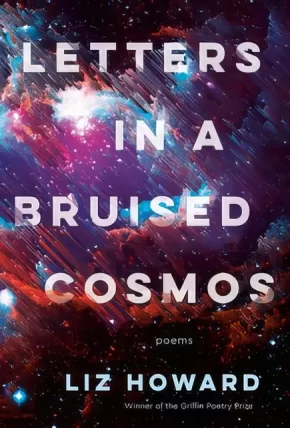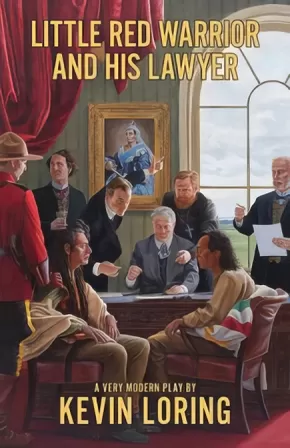
Teen Books
571
-
585
of
1617 Results;
Sort By
Go To
of 108
Indigenous Toronto: Stories that Carry This Place
$24.95
Editors:
● Denise Bolduc (Indigenous Canadian; First Nations; Anishinaabeg; Ojibway; Batchewana;)
● Mnawaate Gordon-Corbiere (Indigenous Canadian; First Nations; Anishinaabeg; Ojibway; M'Chigeeng First Nation;)
● Rebeka Tabobondung (Indigenous Canadian; First Nations; Anishinaabeg; Wasauksing First Nation;)
 Show More ...
Show More ...
● Mnawaate Gordon-Corbiere (Indigenous Canadian; First Nations; Anishinaabeg; Ojibway; M'Chigeeng First Nation;)
● Rebeka Tabobondung (Indigenous Canadian; First Nations; Anishinaabeg; Wasauksing First Nation;)
Format:
Paperback
Text Content Territories:
Indigenous Canadian; First Nations; Anishinaabeg; Haudenosaunee (Iroquois); Huron-Wendat (Ouendat);
ISBN / Barcode: 9781552454152
Synopsis:
Synopsis:
A collection of perspectives by and about Indigenous Toronto, past, present, and future.
Beneath every major city in North America lies a deep and rich Indigenous history that has been colonized, paved over, and ignored. Few of its current inhabitants know that Toronto has seen 12,000 years of different peoples, including the Haudenosaunee, the Anishinaabe, the Huron-Wendat, and the Mississaugas of the New Credit, and a vibrant culture and history that thrives to this day.
With original contributions by Indigenous elders, scholars, journalists, artists, activists, and historians about art, food, health, and more, this unique anthology explores the poles of erasure and cultural continuity that have come to define a crossroads city-region that was known as a meeting place long before the arrival of European settlers.
Contributors include political scientist Hayden King, historian Alan Corbiere, musician Elaine Bomberry, artist Duke Redbird, playwright Drew Hayden Taylor, educator Kerry Potts, writer/journalist Paul Seesequasis and former Mississaugas of the New Credit chief Carolyn King.
Additional Information
192 pages | 5.50" x 8.50"
Indigenous Women and Street Gangs: Survivance Narratives
$32.99
Format:
Paperback
Text Content Territories:
Indigenous Canadian;
Grade Levels: University/College;
ISBN / Barcode: 9781772125498
Synopsis:
Synopsis:
Amber, Bev, Chantel, Jazmyne, Faith, and Jorgina are six Indigenous women previously involved in street gangs or street lifestyles. In Indigenous Women and Street Gangs they collaborate with Robert Henry (Métis) to share an emancipatory expression of their lives through photovoice. Each author shares a narrative that begins with her earliest memory and continues to the present. This is followed by a selection of photographs the woman took to show how she has changed with her experiences. Readers can expect difficult life stories imbued with hope and humour. Throughout, these women show us the meaning of survivance; a process of survival, resistance, resurgence, and growth.
“I don’t think there is any such thing as bad; it’s called healing, you know? It is starting to fix yourself inside your heart, you know? You just got to keep doing it, that’s all I got to say.”- Jazmyne
Educator Information
Caution: mature, triggering, explicit content.
Keywords / Subjects: survivance; photovoice; Indigenous; street gang; critical gang studies; Saskatchewan; women; oral history; community engaged research; relational practice; justice; child welfare; education; health; social work; social services; criminology
Table of Contents
ix Acknowledgements
xi Introduction
3 Amber
23 Bev
39 Chantel
59 Jazmyne
77 Faith
95 Jorgina
115 Photograph Captions
123 Bibliography
Additional Information
144 pages | 9.00" x 9.00" | Paperback
Inheritance: A Pick-the-Path Experience
$24.95
Format:
Paperback
Text Content Territories:
Indigenous Canadian; First Nations; Salish; Interior Salish; Secwepemc (Shuswap);
Reading Level: N/A
ISBN / Barcode: 9781772013627
Synopsis:
Synopsis:
You take your seat in the theatre. You are given a remote control. The play begins.
An urban couple are on a getaway to visit her father at his vast rural estate. But when they arrive, they find him missing and a local Indigenous man staying there instead. They ask him to leave … and with an anonymous click of your remote, you choose what happens next.
When it’s revealed that the colonial rights to this entire property are actually up for grabs, you must continue to decide how the story unfolds, ultimately determining how the land will be stewarded, and by whom.
With humour, suspense, and a race against time, Inheritance is an interactive stage play – with over fifty possible variations – that thrusts you into the middle of a land dispute and asks you to work it out.
Replete with additional material, this unique book includes insightful forewords by President of the Haida Nation Miles Richardson and environmentalist David Suzuki, a brief history of the Secwépemc People, a detailed study guide for students and teachers, and an interview with the co-creators.
Reviews
"The creative team is definitely onto something … digs into land claims and entitlement in engaging new ways, using a lively mix of humour and interactive technology to work through heavy concepts. Viewers go out into the night with the knowledge that land issues will never be solved with an easy click of the button. And more importantly, with plenty to think about their own role in the matter."—the Georgia Straight
"Inheritance is what theatre should be. It breaks boundaries, embraces new technology … It is excellent. It should be required viewing. See it, ask questions, and enjoy the beauty of these incredible artists along the way."—Vancouver Presents
Educator Information
Includes a detailed study guide for students and teachers.
Additional Information
256 pages | 8.50" x 5.50"
Island Eats: Signature Chefs' Recipes from Vancouver Island and the Salish Sea
$38.99
Format:
Hardcover
Reading Level: N/A
ISBN / Barcode: 9781773271675
Synopsis:
Synopsis:
Plenty of people talk about farm-to-table dining these days. But on Vancouver Island and the surrounding Gulf Islands, it’s truly a way of life. And why not, when there is so much abundance to choose from? From the Comox Valley to the Cowichan to Salt Spring Island, you’ll find everything from truffles to tea, passionfruit to Pinot Noir, water buffalo to the most delicately briny oysters.
Island Eats is a tribute to the vibrant food culture of Vancouver Island and the Gulf Islands and the celebration of a passionate culinary community built on the edge of a continent. Whether they’re shucking oysters and rolling pasta just for you, pouring you a glass of local wine, telling you about the best surf beach or hiking trail or the cool new craft brewery in town, the chefs, mixologists, and food artisans profiled in this cookbook have contributed to the heartfelt food traditions of a rare culinary destination.
Featuring more than 80 signature dishes, from a classic salmon chowder to island-foraged chantarelle risotto, apple pie waffles to bannock ice-cream sandwich, this inspired collection boasts locally-minded, soul-satisfying dishes that readers will want to make again and again.
Additional Information
240 pages | 8.00" x 10.00"
Kinship: Belonging in a World of Relations, Vol. 1 - Planet
$29.95
Editors:
Format:
Paperback
Text Content Territories:
Indigenous;
Reading Level: N/A
ISBN / Barcode: 9781736862506
Synopsis:
Additional Information
180 pages | 5.27" x 7.75" | Paperback
Synopsis:
Volume 1 of the Kinship series revolves around the question of planetary relations: What are the sources of our deepest evolutionary and planetary connections, and of our profound longing for kinship?
We live in an astounding world of relations. We share these ties that bind with our fellow humans—and we share these relations with nonhuman beings as well. From the bacterium swimming in your belly to the trees exhaling the breath you breathe, this community of life is our kin—and, for many cultures around the world, being human is based upon this extended sense of kinship.
Kinship: Belonging in a World of Relations is a lively series that explores our deep interconnections with the living world. The five Kinship volumes—Planet, Place, Partners, Persons, Practice—offer essays, interviews, poetry, and stories of solidarity, highlighting the interdependence that exists between humans and nonhuman beings. More than 70 contributors—including Robin Wall Kimmerer, Richard Powers, David Abram, J. Drew Lanham, and Sharon Blackie—invite readers into cosmologies, narratives, and everyday interactions that embrace a more-than-human world as worthy of our response and responsibility.
With every breath, every sip of water, every meal, we are reminded that our lives are inseparable from the life of the world—and the cosmos—in ways both material and spiritual. “Planet,” Volume 1 of the Kinship series, focuses on our Earthen home and the cosmos within which our “pale blue dot” of a planet nestles. National poet laureate Joy Harjo opens up the volume asking us to “Remember the sky you were born under.” The essayists and poets that follow—such as geologist Marcia Bjornerud who takes readers on a Deep Time journey, geophilosopher David Abram who imagines the Earth’s breathing through animal migrations, and theoretical physicist Marcelo Gleiser who contemplates the relations between mystery and science—offer perspectives from around the world and from various cultures about what it means to be an Earthling, and all that we share in common with our planetary kin. “Remember,” Harjo implores, “all is in motion, is growing, is you.”
Proceeds from sales of Kinship benefit the nonprofit, non-partisan Center for Humans and Nature, which partners with some of the brightest minds to explore human responsibilities to each other and the more-than-human world. The Center brings together philosophers, ecologists, artists, political scientists, anthropologists, poets and economists, among others, to think creatively about a resilient future for the whole community of life.
We live in an astounding world of relations. We share these ties that bind with our fellow humans—and we share these relations with nonhuman beings as well. From the bacterium swimming in your belly to the trees exhaling the breath you breathe, this community of life is our kin—and, for many cultures around the world, being human is based upon this extended sense of kinship.
Kinship: Belonging in a World of Relations is a lively series that explores our deep interconnections with the living world. The five Kinship volumes—Planet, Place, Partners, Persons, Practice—offer essays, interviews, poetry, and stories of solidarity, highlighting the interdependence that exists between humans and nonhuman beings. More than 70 contributors—including Robin Wall Kimmerer, Richard Powers, David Abram, J. Drew Lanham, and Sharon Blackie—invite readers into cosmologies, narratives, and everyday interactions that embrace a more-than-human world as worthy of our response and responsibility.
With every breath, every sip of water, every meal, we are reminded that our lives are inseparable from the life of the world—and the cosmos—in ways both material and spiritual. “Planet,” Volume 1 of the Kinship series, focuses on our Earthen home and the cosmos within which our “pale blue dot” of a planet nestles. National poet laureate Joy Harjo opens up the volume asking us to “Remember the sky you were born under.” The essayists and poets that follow—such as geologist Marcia Bjornerud who takes readers on a Deep Time journey, geophilosopher David Abram who imagines the Earth’s breathing through animal migrations, and theoretical physicist Marcelo Gleiser who contemplates the relations between mystery and science—offer perspectives from around the world and from various cultures about what it means to be an Earthling, and all that we share in common with our planetary kin. “Remember,” Harjo implores, “all is in motion, is growing, is you.”
Proceeds from sales of Kinship benefit the nonprofit, non-partisan Center for Humans and Nature, which partners with some of the brightest minds to explore human responsibilities to each other and the more-than-human world. The Center brings together philosophers, ecologists, artists, political scientists, anthropologists, poets and economists, among others, to think creatively about a resilient future for the whole community of life.
Educator & Series Information
Contributors are both Indigenous and non-Indigenous.
Contributors are both Indigenous and non-Indigenous.
Kinship: Belonging in a World of Relations is a lively series that explores our deep interconnections with the living world. The five Kinship volumes—Planet, Place, Partners, Persons, Practice—offer essays, interviews, poetry, and stories of solidarity, highlighting the interdependence that exists between humans and nonhuman beings. More than 70 contributors—including Robin Wall Kimmerer, Richard Powers, David Abram, J. Drew Lanham, and Sharon Blackie—invite readers into cosmologies, narratives, and everyday interactions that embrace a more-than-human world as worthy of our response and responsibility.
Additional Information
180 pages | 5.27" x 7.75" | Paperback
Kinship: Belonging in a World of Relations, Vol. 2 - Place
$29.95
Editors:
Format:
Paperback
Text Content Territories:
Indigenous;
Reading Level: N/A
ISBN / Barcode: 9781736862513
Synopsis:
Additional Information
204 pages | 5.27" x 7.75" | Paperback
Synopsis:
Volume 2 of the Kinship series revolves around the question of place-based relations: To what extent does crafting a deeper connection with the Earth’s bioregions reinvigorate a sense of kinship with the place-based beings, systems, and communities that mutually shape one another?
We live in an astounding world of relations. We share these ties that bind with our fellow humans—and we share these relations with nonhuman beings as well. From the bacterium swimming in your belly to the trees exhaling the breath you breathe, this community of life is our kin—and, for many cultures around the world, being human is based upon this extended sense of kinship.
Kinship: Belonging in a World of Relations is a lively series that explores our deep interconnections with the living world. The five Kinship volumes—Planet, Place, Partners, Persons, Practice—offer essays, interviews, poetry, and stories of solidarity, highlighting the interdependence that exists between humans and nonhuman beings. More than 70 contributors—including Robin Wall Kimmerer, Richard Powers, David Abram, J. Drew Lanham, and Sharon Blackie—invite readers into cosmologies, narratives, and everyday interactions that embrace a more-than-human world as worthy of our response and responsibility.
Given the place-based circumstances of human evolution and culture, global consciousness may be too broad a scale of care. “Place,” Volume 2 of the Kinship series, addresses the bioregional, multispecies communities and landscapes within which we dwell. The essayists and poets in this volume take us around the world to a variety of distinctive places—from ethnobiologist Gary Paul Nabhan’s beloved and beleaguered sacred U.S.-Mexico borderlands, to Pacific islander and poet Craig Santos Perez’s ancestral shores, to writer Lisa María Madera’s “vibrant flow of kinship” in the equatorial Andes expressed in Pacha Mama’s constitutional rights in Ecuador. As Chippewa scholar-activist Melissa Nelson observes about kinning with place in her conversation with John Hausdoerffer: “Whether a desert mesa, a forested mountain, a windswept plain, or a crowded city—those places also participate in this serious play with raven cries, northern winds, car traffic, or coyote howls.” This volume reveals the ways in which playing in, tending to, and caring for place wraps us into a world of kinship.
Proceeds from sales of Kinship benefit the nonprofit, non-partisan Center for Humans and Nature, which partners with some of the brightest minds to explore human responsibilities to each other and the more-than-human world. The Center brings together philosophers, ecologists, artists, political scientists, anthropologists, poets and economists, among others, to think creatively about a resilient future for the whole community of life.
We live in an astounding world of relations. We share these ties that bind with our fellow humans—and we share these relations with nonhuman beings as well. From the bacterium swimming in your belly to the trees exhaling the breath you breathe, this community of life is our kin—and, for many cultures around the world, being human is based upon this extended sense of kinship.
Kinship: Belonging in a World of Relations is a lively series that explores our deep interconnections with the living world. The five Kinship volumes—Planet, Place, Partners, Persons, Practice—offer essays, interviews, poetry, and stories of solidarity, highlighting the interdependence that exists between humans and nonhuman beings. More than 70 contributors—including Robin Wall Kimmerer, Richard Powers, David Abram, J. Drew Lanham, and Sharon Blackie—invite readers into cosmologies, narratives, and everyday interactions that embrace a more-than-human world as worthy of our response and responsibility.
Given the place-based circumstances of human evolution and culture, global consciousness may be too broad a scale of care. “Place,” Volume 2 of the Kinship series, addresses the bioregional, multispecies communities and landscapes within which we dwell. The essayists and poets in this volume take us around the world to a variety of distinctive places—from ethnobiologist Gary Paul Nabhan’s beloved and beleaguered sacred U.S.-Mexico borderlands, to Pacific islander and poet Craig Santos Perez’s ancestral shores, to writer Lisa María Madera’s “vibrant flow of kinship” in the equatorial Andes expressed in Pacha Mama’s constitutional rights in Ecuador. As Chippewa scholar-activist Melissa Nelson observes about kinning with place in her conversation with John Hausdoerffer: “Whether a desert mesa, a forested mountain, a windswept plain, or a crowded city—those places also participate in this serious play with raven cries, northern winds, car traffic, or coyote howls.” This volume reveals the ways in which playing in, tending to, and caring for place wraps us into a world of kinship.
Proceeds from sales of Kinship benefit the nonprofit, non-partisan Center for Humans and Nature, which partners with some of the brightest minds to explore human responsibilities to each other and the more-than-human world. The Center brings together philosophers, ecologists, artists, political scientists, anthropologists, poets and economists, among others, to think creatively about a resilient future for the whole community of life.
Educator & Series Information
Contributors are both Indigenous and non-Indigenous.
Contributors are both Indigenous and non-Indigenous.
Kinship: Belonging in a World of Relations is a lively series that explores our deep interconnections with the living world. The five Kinship volumes—Planet, Place, Partners, Persons, Practice—offer essays, interviews, poetry, and stories of solidarity, highlighting the interdependence that exists between humans and nonhuman beings. More than 70 contributors—including Robin Wall Kimmerer, Richard Powers, David Abram, J. Drew Lanham, and Sharon Blackie—invite readers into cosmologies, narratives, and everyday interactions that embrace a more-than-human world as worthy of our response and responsibility.
Additional Information
204 pages | 5.27" x 7.75" | Paperback
Kinship: Belonging in a World of Relations, Vol. 3 - Partners
$29.95
Editors:
Format:
Paperback
Text Content Territories:
Indigenous;
Reading Level: N/A
ISBN / Barcode: 9781736862520
Synopsis:
Additional Information
170 pages | 5.27" x 7.75" | Paperback
Synopsis:
Volume 3 of the Kinship series revolves around the question of interspecies relations: How do relations between and among different species foster a sense of responsibility and belonging in us?
We live in an astounding world of relations. We share these ties that bind with our fellow humans—and we share these relations with nonhuman beings as well. From the bacterium swimming in your belly to the trees exhaling the breath you breathe, this community of life is our kin—and, for many cultures around the world, being human is based upon this extended sense of kinship.
Kinship: Belonging in a World of Relations is a lively series that explores our deep interconnections with the living world. The five Kinship volumes—Planet, Place, Partners, Persons, Practice—offer essays, interviews, poetry, and stories of solidarity, highlighting the interdependence that exists between humans and nonhuman beings. More than 70 contributors—including Robin Wall Kimmerer, Richard Powers, David Abram, J. Drew Lanham, and Sharon Blackie—invite readers into cosmologies, narratives, and everyday interactions that embrace a more-than-human world as worthy of our response and responsibility.
How do cultural traditions, narratives, and mythologies shape the ways we relate, or not, to other beings as kin? “Partners,” Volume 3 of the Kinship series, looks to the intimate relationships of respect and reverence we share with nonhuman species. The essayists and poets in this volume explore the stunning diversity of our relations to nonhuman persons—from biologist Merlin Sheldrake’s reflections on microscopic fungal networks, to writer Julian Hoffman’s moving stories about elephant emotions and communication, to Indigenous seed activist Rowen White’s deep care for plant relatives and ancestors. Our relationships to other creatures are not merely important; they make us possible. As poet Brenda Cárdenas, inspired by her cultural connections to the monarch butterfly, notes in this volume: “We are— / one life passing through the prism / of all others, gathering color and song.”
Proceeds from sales of Kinship benefit the nonprofit, non-partisan Center for Humans and Nature, which partners with some of the brightest minds to explore human responsibilities to each other and the more-than-human world. The Center brings together philosophers, ecologists, artists, political scientists, anthropologists, poets and economists, among others, to think creatively about a resilient future for the whole community of life.
We live in an astounding world of relations. We share these ties that bind with our fellow humans—and we share these relations with nonhuman beings as well. From the bacterium swimming in your belly to the trees exhaling the breath you breathe, this community of life is our kin—and, for many cultures around the world, being human is based upon this extended sense of kinship.
Kinship: Belonging in a World of Relations is a lively series that explores our deep interconnections with the living world. The five Kinship volumes—Planet, Place, Partners, Persons, Practice—offer essays, interviews, poetry, and stories of solidarity, highlighting the interdependence that exists between humans and nonhuman beings. More than 70 contributors—including Robin Wall Kimmerer, Richard Powers, David Abram, J. Drew Lanham, and Sharon Blackie—invite readers into cosmologies, narratives, and everyday interactions that embrace a more-than-human world as worthy of our response and responsibility.
How do cultural traditions, narratives, and mythologies shape the ways we relate, or not, to other beings as kin? “Partners,” Volume 3 of the Kinship series, looks to the intimate relationships of respect and reverence we share with nonhuman species. The essayists and poets in this volume explore the stunning diversity of our relations to nonhuman persons—from biologist Merlin Sheldrake’s reflections on microscopic fungal networks, to writer Julian Hoffman’s moving stories about elephant emotions and communication, to Indigenous seed activist Rowen White’s deep care for plant relatives and ancestors. Our relationships to other creatures are not merely important; they make us possible. As poet Brenda Cárdenas, inspired by her cultural connections to the monarch butterfly, notes in this volume: “We are— / one life passing through the prism / of all others, gathering color and song.”
Proceeds from sales of Kinship benefit the nonprofit, non-partisan Center for Humans and Nature, which partners with some of the brightest minds to explore human responsibilities to each other and the more-than-human world. The Center brings together philosophers, ecologists, artists, political scientists, anthropologists, poets and economists, among others, to think creatively about a resilient future for the whole community of life.
Educator & Series Information
Contributors are both Indigenous and non-Indigenous.
Contributors are both Indigenous and non-Indigenous.
Kinship: Belonging in a World of Relations is a lively series that explores our deep interconnections with the living world. The five Kinship volumes—Planet, Place, Partners, Persons, Practice—offer essays, interviews, poetry, and stories of solidarity, highlighting the interdependence that exists between humans and nonhuman beings. More than 70 contributors—including Robin Wall Kimmerer, Richard Powers, David Abram, J. Drew Lanham, and Sharon Blackie—invite readers into cosmologies, narratives, and everyday interactions that embrace a more-than-human world as worthy of our response and responsibility.
Additional Information
170 pages | 5.27" x 7.75" | Paperback
Kinship: Belonging in a World of Relations, Vol. 4 - Persons
$29.95
Editors:
Format:
Paperback
Text Content Territories:
Indigenous;
Reading Level: N/A
ISBN / Barcode: 9781736862537
Synopsis:
Additional Information
194 pages | 5.27" x 7.75" | Paperback
Synopsis:
Volume 4 of the Kinship series revolves around the question of interpersonal relations: Which experiences expand our understanding of being human in relation to other-than-human beings?
We live in an astounding world of relations. We share these ties that bind with our fellow humans—and we share these relations with nonhuman beings as well. From the bacterium swimming in your belly to the trees exhaling the breath you breathe, this community of life is our kin—and, for many cultures around the world, being human is based upon this extended sense of kinship.
Kinship: Belonging in a World of Relations is a lively series that explores our deep interconnections with the living world. The five Kinship volumes—Planet, Place, Partners, Persons, Practice—offer essays, interviews, poetry, and stories of solidarity, highlighting the interdependence that exists between humans and nonhuman beings. More than 70 contributors—including Robin Wall Kimmerer, Richard Powers, David Abram, J. Drew Lanham, and Sharon Blackie—invite readers into cosmologies, narratives, and everyday interactions that embrace a more-than-human world as worthy of our response and responsibility.
Kinship spans the cosmos, but it is perhaps most life-changing when experienced directly and personally. “Persons,” Volume 4 of the Kinship series, attends to the personal—our unique experiences with particular creatures and landscapes. This includes nonhuman kin that become our allies, familiars, and teachers as we navigate a “world as full of persons, human and otherwise, all more-or-less close kin, all deserving respect,” as religious studies scholar Graham Harvey puts it. The essayists and poets in the volume share a wide variety of kinship-based experiences—from Australian ecophilosopher Freya Mathews’s perspective on climate-related devastation on her country’s koalas, to English professor and forest therapy guide Kimberly Ruffin’s reclamation of her “inner animal,” to German biologist and philosopher Andreas Weber’s absorption with and by lichen. Our kinships are interpersonal, and being “pried open with curiosity,” as poet and hip-hop emcee Manon Voice notes in this volume, “Stir the first of many magicks.”
Proceeds from sales of Kinship benefit the nonprofit, non-partisan Center for Humans and Nature, which partners with some of the brightest minds to explore human responsibilities to each other and the more-than-human world. The Center brings together philosophers, ecologists, artists, political scientists, anthropologists, poets and economists, among others, to think creatively about a resilient future for the whole community of life.
We live in an astounding world of relations. We share these ties that bind with our fellow humans—and we share these relations with nonhuman beings as well. From the bacterium swimming in your belly to the trees exhaling the breath you breathe, this community of life is our kin—and, for many cultures around the world, being human is based upon this extended sense of kinship.
Kinship: Belonging in a World of Relations is a lively series that explores our deep interconnections with the living world. The five Kinship volumes—Planet, Place, Partners, Persons, Practice—offer essays, interviews, poetry, and stories of solidarity, highlighting the interdependence that exists between humans and nonhuman beings. More than 70 contributors—including Robin Wall Kimmerer, Richard Powers, David Abram, J. Drew Lanham, and Sharon Blackie—invite readers into cosmologies, narratives, and everyday interactions that embrace a more-than-human world as worthy of our response and responsibility.
Kinship spans the cosmos, but it is perhaps most life-changing when experienced directly and personally. “Persons,” Volume 4 of the Kinship series, attends to the personal—our unique experiences with particular creatures and landscapes. This includes nonhuman kin that become our allies, familiars, and teachers as we navigate a “world as full of persons, human and otherwise, all more-or-less close kin, all deserving respect,” as religious studies scholar Graham Harvey puts it. The essayists and poets in the volume share a wide variety of kinship-based experiences—from Australian ecophilosopher Freya Mathews’s perspective on climate-related devastation on her country’s koalas, to English professor and forest therapy guide Kimberly Ruffin’s reclamation of her “inner animal,” to German biologist and philosopher Andreas Weber’s absorption with and by lichen. Our kinships are interpersonal, and being “pried open with curiosity,” as poet and hip-hop emcee Manon Voice notes in this volume, “Stir the first of many magicks.”
Proceeds from sales of Kinship benefit the nonprofit, non-partisan Center for Humans and Nature, which partners with some of the brightest minds to explore human responsibilities to each other and the more-than-human world. The Center brings together philosophers, ecologists, artists, political scientists, anthropologists, poets and economists, among others, to think creatively about a resilient future for the whole community of life.
Educator & Series Information
One of the editors of this work is Indigenous. And, throughout the series, various Indigenous contributions (stories, poems, etc.) can be found.
One of the editors of this work is Indigenous. And, throughout the series, various Indigenous contributions (stories, poems, etc.) can be found.
Kinship: Belonging in a World of Relations is a lively series that explores our deep interconnections with the living world. The five Kinship volumes—Planet, Place, Partners, Persons, Practice—offer essays, interviews, poetry, and stories of solidarity, highlighting the interdependence that exists between humans and nonhuman beings. More than 70 contributors—including Robin Wall Kimmerer, Richard Powers, David Abram, J. Drew Lanham, and Sharon Blackie—invite readers into cosmologies, narratives, and everyday interactions that embrace a more-than-human world as worthy of our response and responsibility.
Additional Information
194 pages | 5.27" x 7.75" | Paperback
Kinship: Belonging in a World of Relations, Vol. 5 - Practice
$29.95
Editors:
Format:
Paperback
Text Content Territories:
Indigenous;
Reading Level: N/A
ISBN / Barcode: 9781736862544
Synopsis:
Additional Information
194 pages | 5.27" x 7.75" | Paperback
Synopsis:
Volume 5 of the Kinship series revolves around the question of practice: What are the practical, everyday, and lifelong ways we become kin?
We live in an astounding world of relations. We share these ties that bind with our fellow humans—and we share these relations with nonhuman beings as well. From the bacterium swimming in your belly to the trees exhaling the breath you breathe, this community of life is our kin—and, for many cultures around the world, being human is based upon this extended sense of kinship.
Kinship: Belonging in a World of Relations is a lively series that explores our deep interconnections with the living world. These five Kinship volumes—Planet, Place, Partners, Persons, Practice—offer essays, interviews, poetry, and stories of solidarity, highlighting the interdependence that exists between humans and nonhuman beings. More than 70 contributors—including Robin Wall Kimmerer, Richard Powers, David Abram, J. Drew Lanham, and Sharon Blackie—invite readers into cosmologies, narratives, and everyday interactions that embrace a more-than-human world as worthy of our response and responsibility. These diverse voices render a wide range of possibilities for becoming better kin.
From the perspective of kinship as a recognition of nonhuman personhood, of kincentric ethics, and of kinship as a verb involving active and ongoing participation, how are we to live? “Practice,” Volume 5 of the Kinship series, turns to the relations that we nurture and cultivate as part of our lived ethics. The essayists and poets in this volume explore how we make kin and strengthen kin relationships through respectful participation—from creative writer and dance teacher Maya Ward’s weave of landscape, story, song, and body, to Lakota peace activist Tiokasin Ghosthorse’s reflections on language as a key way of knowing and practicing kinship, to cultural geographer Amba Sepie’s wrestling with how to become kin when ancestral connections have frayed. The volume concludes with an amazing and spirited conversation between John Hausdoerffer, Robin Wall Kimmerer, Sharon Blackie, Enrique Salmon, Orrin Williams, and Maria Isabel Morales on the breadth and qualities of kinship practices.
Proceeds from sales of Kinship benefit the nonprofit, non-partisan Center for Humans and Nature, which partners with some of the brightest minds to explore human responsibilities to each other and the more-than-human world. The Center brings together philosophers, ecologists, artists, political scientists, anthropologists, poets and economists, among others, to think creatively about a resilient future for the whole community of life.
We live in an astounding world of relations. We share these ties that bind with our fellow humans—and we share these relations with nonhuman beings as well. From the bacterium swimming in your belly to the trees exhaling the breath you breathe, this community of life is our kin—and, for many cultures around the world, being human is based upon this extended sense of kinship.
Kinship: Belonging in a World of Relations is a lively series that explores our deep interconnections with the living world. These five Kinship volumes—Planet, Place, Partners, Persons, Practice—offer essays, interviews, poetry, and stories of solidarity, highlighting the interdependence that exists between humans and nonhuman beings. More than 70 contributors—including Robin Wall Kimmerer, Richard Powers, David Abram, J. Drew Lanham, and Sharon Blackie—invite readers into cosmologies, narratives, and everyday interactions that embrace a more-than-human world as worthy of our response and responsibility. These diverse voices render a wide range of possibilities for becoming better kin.
From the perspective of kinship as a recognition of nonhuman personhood, of kincentric ethics, and of kinship as a verb involving active and ongoing participation, how are we to live? “Practice,” Volume 5 of the Kinship series, turns to the relations that we nurture and cultivate as part of our lived ethics. The essayists and poets in this volume explore how we make kin and strengthen kin relationships through respectful participation—from creative writer and dance teacher Maya Ward’s weave of landscape, story, song, and body, to Lakota peace activist Tiokasin Ghosthorse’s reflections on language as a key way of knowing and practicing kinship, to cultural geographer Amba Sepie’s wrestling with how to become kin when ancestral connections have frayed. The volume concludes with an amazing and spirited conversation between John Hausdoerffer, Robin Wall Kimmerer, Sharon Blackie, Enrique Salmon, Orrin Williams, and Maria Isabel Morales on the breadth and qualities of kinship practices.
Proceeds from sales of Kinship benefit the nonprofit, non-partisan Center for Humans and Nature, which partners with some of the brightest minds to explore human responsibilities to each other and the more-than-human world. The Center brings together philosophers, ecologists, artists, political scientists, anthropologists, poets and economists, among others, to think creatively about a resilient future for the whole community of life.
Educator & Series Information
Contributors are both Indigenous and non-Indigenous.
Contributors are both Indigenous and non-Indigenous.
Kinship: Belonging in a World of Relations is a lively series that explores our deep interconnections with the living world. The five Kinship volumes—Planet, Place, Partners, Persons, Practice—offer essays, interviews, poetry, and stories of solidarity, highlighting the interdependence that exists between humans and nonhuman beings. More than 70 contributors—including Robin Wall Kimmerer, Richard Powers, David Abram, J. Drew Lanham, and Sharon Blackie—invite readers into cosmologies, narratives, and everyday interactions that embrace a more-than-human world as worthy of our response and responsibility.
Additional Information
194 pages | 5.27" x 7.75" | Paperback
Kitcikisik: (Great Sky) Tellings That Fill the Night Sky
$22.95
Artists:
Format:
Paperback
Text Content Territories:
Indigenous Canadian; First Nations; Cree (Nehiyawak);
ISBN / Barcode: 9781990297038
Synopsis:
Synopsis:
Pawaminikititicikiw, Wilfred Buck, is an Ininew / Cree, Knowledge and Dream Keeper of the Opaskwayak Cree Nation of Northern Manitoba. He is the author of Tipiskawi Kisik: Night Sky Star stories, and I Have Lived Four Lives, a memoir. Kitcikisik (Great Sky) features Indigenous Star Knowledge and is the second edition of Tipiskawi Kisik.
Educator Information
Recommended by the publisher for grades 7+
Additional Information
86 Pages
Kitotam: He Speaks to It
$20.00
Format:
Paperback
Text Content Territories:
Indigenous Canadian; First Nations; Cree (Nehiyawak); Plains Cree;
ISBN / Barcode: 9781989274507
Synopsis:
Synopsis:
The Neyhiyawak (Plains Cree) word "Kitotam" translates into English as, "He Speaks to It." This is a collection of free-verse poetry by Indigenous poet and artist John McDonald. Written in two parts, these poems chronicle John's life and experiences as an urban Indigenous youth during the 1980s. The second half of the book is a look into the inspirations and events, that shaped John's career as an internationally known spoken word artist, beat poet, monologist and performance artist.
Additional Information
88 pages | 5.50" x 8.50"
Kuei, je te salue: Conversation sur le racisme [nouvelle edition]
$22.00
Format:
Paperback
Text Content Territories:
Indigenous Canadian; First Nations; Innu (Montagnais-Naskapi);
ISBN / Barcode: 9782897196967
Synopsis:
Synopsis:
Un livre à mettre entre toutes les mains, pour que le dialogue prenne le pas sur le racisme En 2016, la poète Innu Natasha Kanapé Fontaine et le romancier québéco-américain Deni Ellis Béchard entamaient une conversation sans tabou sur le racisme entre Autochtones et Allochtones. Cette rencontre littéraire et poétique ouvrait un dialogue nécessaire et faisait émerger une série de questions. Comment cohabiter si notre histoire commune est empreinte de honte, de blessures et de colère ? Comment faire réaliser aux Blancs le privilège invisible de la domination historique? Comment guérir les Autochtones des stigmates du génocide culturel ? Pour ouvrir le dialogue et amorcer la nécessaire réconciliation entre nos peuples, Deni et Natasha sont partis de leur trajectoire personnelle et ont tenté de débusquer les mots et comportements qui empruntent les chemins du racisme. Natasha raconte sa découverte des pensionnats autochtones, son obsession pour la crise d'Oka, la vie sur la réserve de Pessamit ; Deni parle du racisme ordinaire de son père, de la ségrégation envers les Afro-Américains, de son identité de Québécois aux États-Unis. Cinq ans et des milliers de lecteurs et lectrices plus tard, Deni et Natasha ont décidé de reprendre la plume et de poursuivre ce « rendez-vous de la parole qui s'ouvre ». Démarré en septembre 2020, leur échange épistolaire renoue avec le ton intimiste et le foisonnement intellectuel qui caractérisaient leurs premiers échanges. Deni écrit depuis Stanford, en Californie, alors que les feux de forêts ravagent ce territoire et que la campagne présidentielle bat son plein aux États-Unis, en pleine pandémie, sur fond de montée des extrêmes et d’une parole haineuse libérée par quatre ans de pouvoir de Trump. Il décrit la mobilisation sans précédent du mouvement Black Live Matters à la suite de l’assassinat odieux de George Floyd, cet Afro-Américain de 46 ans abattu par un policier blanc à Minneapolis le 25 mai 2020. Natasha a été marquée par le soulèvement des Wet’suwet’en contre le gazoduc Coastal GasLink partout au Canada et par l’hypocrisie colonialiste de la politique de la reconnaissance du gouvernement Trudeau à l’égard des Autochtones. Puis, au milieu de leurs échanges, est arrivé l’impensable : la mort de Joyce Echaquan, une femme de 37 ans, Atikamekw, sous les injures racistes et humiliantes de deux infirmières de l’hôpital de Joliette. « Une indignation est montée. […] À Montréal, le samedi suivant, nous étions des milliers à marcher pour la reconnaissance du racisme systémique, comme celui dans les services de la santé, et à réclamer justice. Son nom est désormais rattaché au mot « justice » : Justice Pour Joyce. Une douleur est venue m’envahir. Depuis, elle habite mon corps comme une vieille amie. Je n’ai pas ressenti de colère. Je n’en ai plus la force. Une douleur tellement vive, Deni. J’en pleure presque tous les jours. » Deni lui répond : « Chère nuitsheuakan, pendant cette période de souffrances et d’incertitudes, il est clair que la solution passera par un chemin long et difficile. […] Récemment, je me suis plongé dans l’histoire des mouvements sociaux et j’ai pris conscience des millions de personnes qui ont lutté jusqu’ici. C’est horrible de parler de patience quand tellement d’êtres humains vivent de l’oppression, mais il faut qu’on persiste et qu’on sache qu’au cœur de tout ce qu’on fait, reste le dialogue. Un proverbe grec dit : «?Une société devient grande quand des vieillards plantent des arbres à l’ombre desquels ils savent qu’ils ne s’assoiront jamais.?» Je souhaite qu’on ait des politicien.ne.s qui, un jour, se demandent ce qu’il faut faire aujourd’hui pour avoir la paix demain. En attendant, on a des artistes et des militant.e.s comme toi.» Croisant leurs mots, leurs indignations et leurs espoirs, ces deux grands écrivain.e.s nous offrent un livre humaniste et universel sur le rapport à l'autre et le respect de la différence.
Educator Information
The English version of this resource is a recommended resource for Grades 10-12 in these areas: BC First Peoples, Contemporary Indigenous Studies, English First Peoples, English Studies, Literary Studies.
This resource is also available in English: Kuei, My Friend: A Conversation on Race and Reconciliation.
kʷu‿c̕əx̌ʷəntim təl stunx isck’ʷuls / Lessons From Beaver’s Work
$15.95
Artists:
Format:
Paperback
Text Content Territories:
Indigenous Canadian; First Nations; Salish; Interior Salish; Syilx (Okanagan);
ISBN / Barcode: 9781926886688
Synopsis:
Synopsis:
Beaver shares his teachings on how he shapes the land.
kʷu‿c̕əx̌ʷəntim təl stunx isck’ʷuls / Lessons From Beaver’s Work teaches children through storytelling to hold reverence for all life forms. The book depicts a conflict between Tapit, a rancher, and stunx (beaver), as they both try to meet their water needs. The touching humanity of stunx (Beaver) softens Tapit’s outlook, as he reminds Tapit that he is not the only one that depends on water.
Educator & Series Information
Recommended for ages 10 to 13.
Author Harron Hall has written several children's books that incorporate her Indigenous heritage and her deep commitment to protecting the land and water, including The Water Sings to Suli?, Water Changeling and We Go with Muskrat to Those Living Underwater.
This fictional story teaches the importance of watersheds and protecting our water systems.
Includes words in n'syilxwcn, the language spoken by the Sylix/Okanagan peoples.
This book is part of the Follow the Water series.
Additional Information
26 pages | 8.00" x 8.00"
Letters in a Bruised Cosmos
$19.95
Format:
Paperback
Text Content Territories:
Indigenous Canadian; First Nations; Anishinaabeg;
Grade Levels: 12; University/College;
ISBN / Barcode: 9780771037573
Synopsis:
Synopsis:
I have to believe my account will outpace its ending.
The danger and necessity of living with each other is at the core of Liz Howard’s daring and intimate second collection. Letters in a Bruised Cosmos asks who do we become after the worst has happened? Invoking the knowledge histories of Western and Indigenous astrophysical science, Howard takes us on a breakneck river course of radiant and perilous survival in which we are invited to “reforge [ourselves] inside tomorrow’s humidex”. Everyday observation, family history, and personal tragedy are sublimated here in a propulsive verse that is relentlessly its own. Part autobiography, part philosophical puzzlement, part love song, Letters in a Bruised Cosmos is a book that once read will not soon be forgotten.
Reviews
“Liz Howard’s Letters in a Bruised Cosmos stands as yet another masterpiece of orality and temporality in the blossoming oeuvre that is her poetic arena. We traverse through webbed histories, a multiplicity of singing bodies: human, non-human, father, lover, lake, land, galactic. Howard’s ability to unearth creation and trickster from beneath the rubble of canonic and catatonic poetics is a miracle in the making. It is no surprise to be met with yet again grace and fury in Letters in a Bruised Cosmos—as Howard has demonstrated time and time again, she is a divining starwalker of a poet.” —Joshua Whitehead, author of Jonny Appleseed
“In Letters in a Bruised Cosmos, Liz Howard makes sentences with the elegance and mystery of a sculptor. Howard’s aesthetic mode is a beautiful synthesis of feminist, anti-colonial, and post-structural traditions of critique and re-imagination that is singularly hers. I read each poem with the faith that I would land somewhere I couldn’t have known existed until I opened this book. That’s the mark of poetic genius. I loved this book with my whole body.” —Billy-Ray Belcourt, author of A History of My Brief Body
Additional Information
80 pages | 5.75" x 8.50"
Little Red Warrior and His Lawyer: A Satirical Land Claim Fable
$16.95
Format:
Paperback
Text Content Territories:
Indigenous Canadian; First Nations;
Grade Levels: 12; University/College;
ISBN / Barcode: 9781772012545
Synopsis:
Synopsis:
Little Red Warrior is the last remaining member of the Little Red Warrior First Nation. One day, he discovers a development company has begun construction on his ancestral lands. In a fit of rage, Little Red attacks one of the engineers and is arrested for assault and trespassing on his own lands. In jail he meets his court-appointed lawyer, Larry, who agrees to help Little Red get his lands back. Larry convinces his wife, Desdemona, to allow Little Red to move into their basement while they sort out Red’s case. Desdemona and Red strike up an uneasy relationship. When Red notices that one of Desdemona’s eyes is slightly lazy she becomes increasingly neurotic, convinced that Little Red is up to something. Despite herself Desdemona, who is not accustomed to being thrown off her game, is increasingly drawn to Red’s apparently hypnotic Indigenous charisma. As sparks begin to fly between them Larry prepares to fight for Little Red’s Land Rights. An unexpected intervention by a greater power occurs in the court case, and nothing will ever be the same.
Educator Information
Cast of one Indigenous man; two settler men; one settler woman; and one male, female, or non-binary person in drag.
Additional Information
96 pages | 5.50" x 8.50"
Sort By
Go To
of 108

